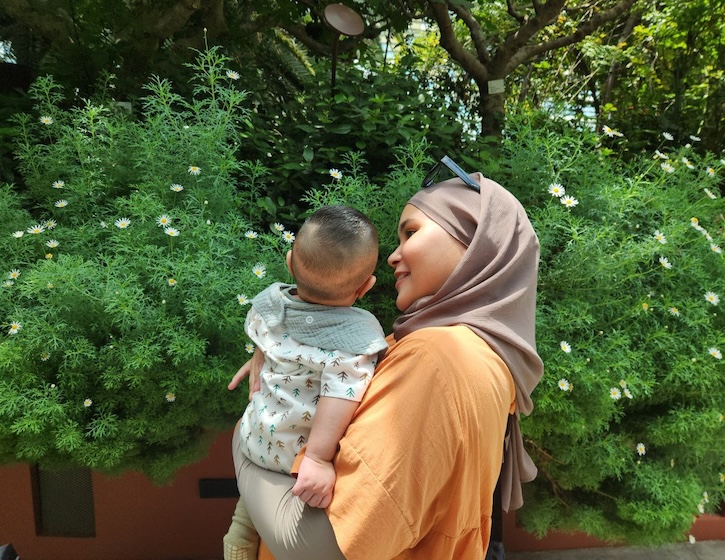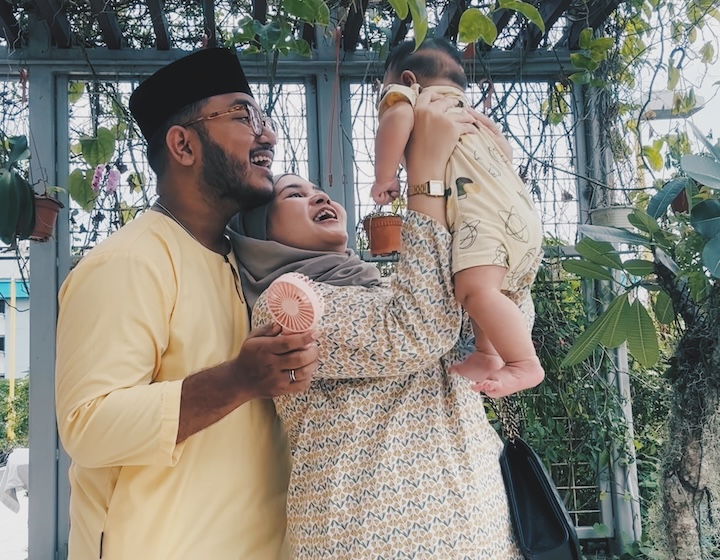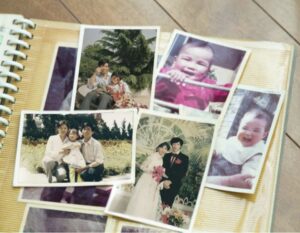
“Ah, your nipples are too small, no wonder,” ‘I felt the weight of mum-shame wash over me for the first time.’ Our writer opens up about her struggles with breastfeeding and shares her journey in accepting what works best for her as a first-time mother (despite the judgment)
The day I gave birth couldn’t have been more different from the one I had envisioned. I had anticipated a euphoric experience, filled with smiles and happy tears. But reality had other plans. Firstly, my labour stretched on for a gruelling 20 hours. Secondly, due to my pelvic bone being too small for my baby to pass through naturally, I needed an emergency c-section. Lastly, because it was an emergency c-section, it meant that my husband couldn’t be by my side for emotional support. And he only got to hold our son about an hour after the operation, a moment he still feels a twinge of sadness about.
Read more: Why All Expectant Mums Should Swit Up on C-Sections Before Vaginal Birth

While I felt grateful for the precious few hours I spent with my husband and our newborn at the ward, what caught me off guard were the constant reminders from nurses to breastfeed whenever the baby cried. As a new mum, I was utterly clueless. Overwhelmed by the events of the past 24 hours, I could barely catch my breath. I mean, I was literally still numb from the waist down, and yet there were nurses swarming around, urging me to breastfeed, akin to how an Asian mum would insist on completing your homework. (Yes, it stirred up some unresolved mummy issues, but that’s a story for another day).
But wait, it gets even worse – mere minutes into attempting to breastfeed my hungry newborn, amidst beads of sweat, the frustration mounting from both the nurses and myself, I discovered that my nipples weren’t sufficiently large for the baby to latch onto. “Ah, your nipples are too small, no wonder,” a nurse remarked insensitively while pinching my nipples roughly. The nurse then took my newborn and offered him formula milk, instantly relieving his hunger.
At that moment, I felt the weight of mum-shame wash over me for the first time. There I was, crying at the fact that perhaps I wasn’t enough for my newborn as a mother.

But let’s rewind. Before giving birth, I had this naive notion that breastfeeding would be effortless and instinctive. Formula feeding didn’t even cross my mind. I literally thought: baby comes out, baby’s hungry, baby latches, baby’s full. What a fool I was! Talk about a wake-up call. I delivered in a public hospital in Singapore, completely unprepared and without a birth plan. Here, it’s practically a given that everyone is pro-breastfeeding. And don’t even get me started on the cost of formula here—it’s through the roof!
Read more: Cost to Give Birth in SG: Public vs. Private Hospitals & Real Reviews
The rest of my hospital stay became a constant rotation of nurses and lactation consultants entering my room to offer guidance on breastfeeding however nothing seemed to improve. My baby still wouldn’t latch and I was still producing little to zero milk.

In the days following my discharge, I turned to the breast pump in hopes of expressing milk. However, to my disappointment, I only managed to collect a maximum of 10ml of milk each time I pumped for 15 minutes, every two hours. It was exhausting, to say the least. I couldn’t afford to take a break. Amidst adjusting to the new routine, trying to ‘sleep when the baby slept’, and allowing my body to recover, I still had to carve out 15-30 minutes every 2-3 hours for pumping. And with every measly 10ml I saw after the gruelling 15 minutes, I felt a wave of disappointment, sinking into feelings of depression and, inadequacy as a mother.
However, coming home also meant that judgment was waiting for me. Family members and friends continued to urge me to persist with pumping and breastfeeding.
“It’s the most nutritious, the healthiest option for your baby.”
“You have to keep pumping every two hours; it’ll get better.”
“What’s the point if you don’t pump regularly? Your milk supply won’t increase.”
“It’s also cheaper! Formula milk is so expensive in Singapore.”
Look, I tried. Every time my son cried, I dropped everything and did my absolute best to breastfeed him. With one hand cradling his delicate body and the other gently coaxing my breast to help him latch better, I endured the pain caused by my nipple size. But my priority was clear: to comfort him, to nourish him. Yet, every three seconds, he would lose the latch and cry, and I’d inevitably resort to feeding him formula.
“He wants his mum, he wants comfort.” Yes, I know. But above all, he needs to be fed.
Two weeks in, and I found myself grappling with post-natal blues. Despite my efforts to keep pumping and help my son latch better, I was still only yielding a mere 10ml of milk, and he continued to struggle with latching. I tried everything, from purchasing vitamins that promised to boost milk supply to seeking a prescription from my gynaecologist.
“You know what, it’s fine. As long as your baby is fed, and most importantly, as long as you’re okay mentally,” my angel of a gynaecologist would always say.

And yet the weeks of struggling went on. I was getting 3-4 hours of sleep a night, scarfing down cold meals whenever I could snatch a moment, struggling to squeeze in a shower, and constantly bickering with my husband. It got me wondering, is this my new normal?
After four weeks, I thought “I just can’t keep going like this. When will the tears stop? These are supposed to be cherished moments with my newborn. But all I feel is pain. I want out,” I was at breaking point.
The final straw came when I groggily awoke from a nap to the sound of my baby’s cries. My husband gently suggested breastfeeding or pumping. After all the prescription meds and vitamins, I was hoping for a tiny miracle—maybe 50ml of milk, please?
Fifteen minutes later, all I got were literal droplets. I bawled my eyes out, the hardest I ever had since becoming a mum just four weeks ago. I yelled at my husband, letting out all the frustration. It felt like I was giving up on the last sliver of hope, admitting defeat.
“It’s okay. Let’s stop, we’ll give him formula. I don’t want you feeling like this anymore. It pains me too.” my husband said.
And that was the turning point. He wiped away my tears, hugged me tightly, and packed away the breast pumps for good. From that very moment, we switched to exclusive formula feeding.

Looking back, it almost feels traumatic. It might sound controversial, but the physical, emotional, and mental toll I endured wasn’t worth sacrificing those precious early weeks of motherhood. In hindsight, I realise I should have had a solid birth plan in place. Maybe, things could have turned out better.
Family and friends still ask about my breastfeeding intentions, and my response remains a firm and resolute “no.” While it stings to see their judgmental expressions, I’ve learned to brush it off.
But I gotta say I’m thankful nonetheless for what has happened. It served as my initiation into motherhood—a stark reminder of the weighty responsibilities that come with the title of “mum.” (Not going to lie, but I teared a little as I wrote that sentence. It’s been five months now, and let me tell you, I’ve come a long way.)
In conclusion, my breastfeeding journey was far from what I had envisioned. The challenges I faced, coupled with the cultural and societal pressures, forced me to confront the realities of motherhood head-on and quickly. While it was lowkey traumatic, I now look back with humility. And I can safely say that I get it now; I get it when mothers say that motherhood comes with unexpected twists and turns. I’ve also realised that there isn’t a perfect formula (hmm, pun intended?) to feeding or motherhood in general, and that’s okay. What matters is your baby is healthy, and that you are healthy, mentally, physically and emotionally.
Is there one last thing that I can tell myself? You’ve done well, mama.






 View All
View All





 View All
View All








 View All
View All







